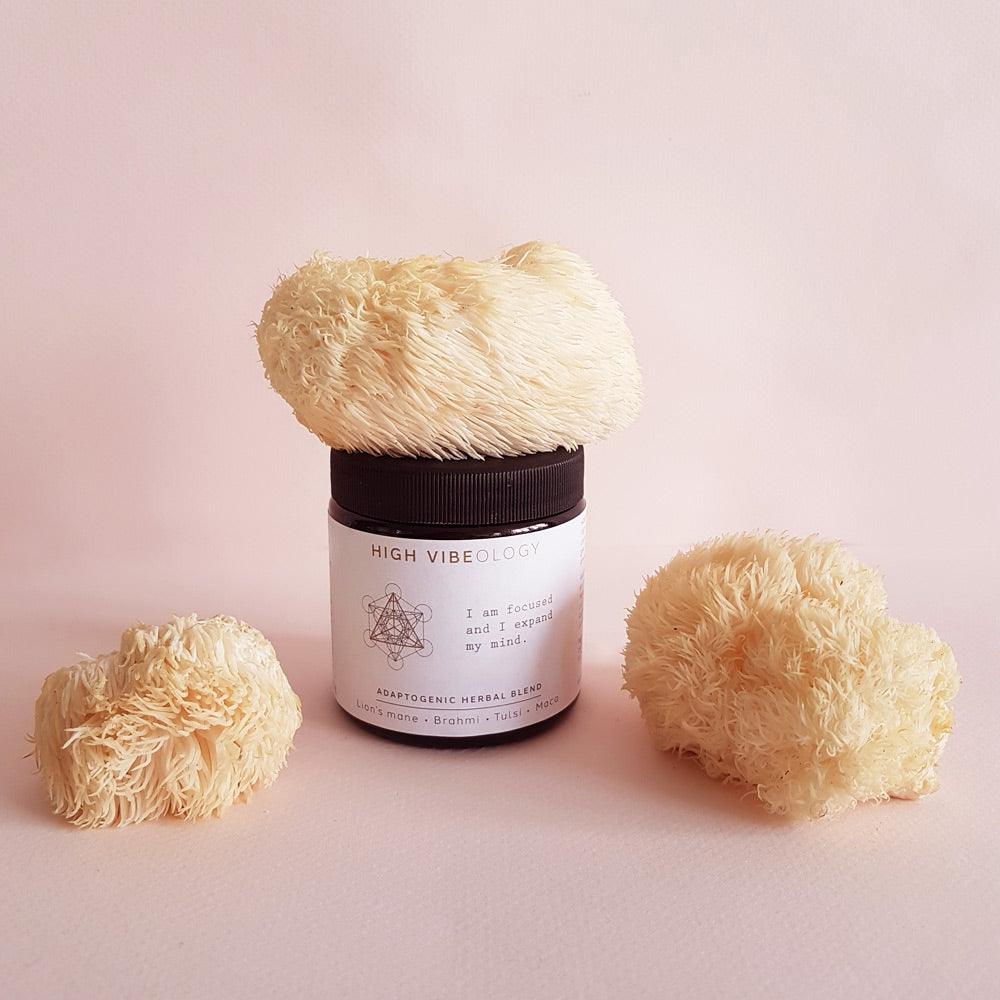Lion's Mane mushroom (Hericium erinaceus) is a medicinal and culinary mushroom that has a multifaceted effect on our well-being.
It is best known for its positive effect on the brain and nerves and is used to support cognitive functions.
What can science tell us about Lion's Mane mushroom?
Here are some interesting findings:
What does science say about Lion's Mane mushroom?
Cognitive functions
Lion's Mane mushroom helps improve cognitive functions, including memory and concentration.
This Japanse study from 2011 found that Lion's Mane helps prevent impairments of spatial short-term and visual recognition memory.
Another Japanese study from 2009 performed on men and women aged 50-80 found that Lion's Mane supplementation improved cognitive function in adults with mild cognitive impairment.
Nerve regeneration
Lion's Mane mushroom helps to stimulate nerve growth and repair. Studies have shown that compounds in Lion's Mane promote the production of nerve growth factors in the brain and nervous system, which might have a beneficial effect on conditions such as Alzheimer's disease, Parkinson’s disease and dementia.
This study found that Lion’s Mane mushroom helps regress recognition memory decline during aging, possibly through an increase in neurogenesis in the hippocampus and the cerebellum.
More studies can be found here, here and here.
Immune function
Lion's Mane mushroom has a beneficial effect on the immune system.
Research suggests that the mushroom may stimulate the production of immune cells and improve the function of the immune system.
Gut health
This study found that HEP3, a protein extracted from Lion’s Mane, has immunomodulatory properties that make it a promising candidate for use as a drug or functional food ingredient in the treatment of gastrointestinal diseases.
In addition, HEP3 can enhance the immune system by regulating the gut microbiota's composition and metabolism, acting as a prebiotic agent.
Stress
Lion's Mane mushroom helps to regulate the nervous and hormone systems.
He is able to change the body's stress reactions and increase the resilience to various stressors.
During this study they researched its positive effect on both anxiety relief and sleep improvement.

Inflammation
This study showed that Lion's Mane can reduce inflammation in the body, which could potentially benefit conditions such as arthritis and inflammatory bowel disease.
You can find more research about this topic here.
Depression
A study published in the Journal of Ethnopharmacology in 2010 found that Lion's Mane extract had antidepressant-like effects. Scientists discovered that Lion’s Mane mushroom increased levels of neurotransmitters serotonin and dopamine which regulate mood in mice's brains.
Another study published in the Journal of Medicinal Food in 2018 examined the effects of Lion's Mane mushroom on depressive symptoms in menopausal women.
The study found that supplementing with Lion's Mane mushroom for four weeks led to a significant reduction in depressive symptoms compared to a placebo group.
You can read more about it here and here.
Anti-skin-aging
Lion’s Mane mushroom has a beneficial effect on skin health, partly due to its nerve growth factor (NGF).
This study found that Lion’s Mane significantly enhanced skin antioxidant enzymes and collagen protein levels.
Another study found that Lion's Mane significantly accelerated wound healing, which was also shown in this study.
This versatile mushroom has a lot to offer when it comes to our well-being.
What makes it special is that unlike many other medicinal mushrooms it is also a culinary mushroom. It has a pleasant taste and a nice texture and can be used to prepare various dishes.
You can also use it in powder form and add it to your foods and drinks.
I explain more about it in this article.
Lion’s Mane mushroom can be found in the I am focused blend for mental clarity and concentration and the I am glowing blend for the skin and immune system.
Always consult with your doctor in case of physical or psychological complaints.
The information provided here is educational in nature and is not a substitute for regular medical care in the form of advice, diagnosis and treatment.
If you are taking medication, have a medical condition, are breastfeeding, etc., please consult with your doctor about whether you can use adaptogens.
Adaptogens are not suitable for use during pregnancy.

